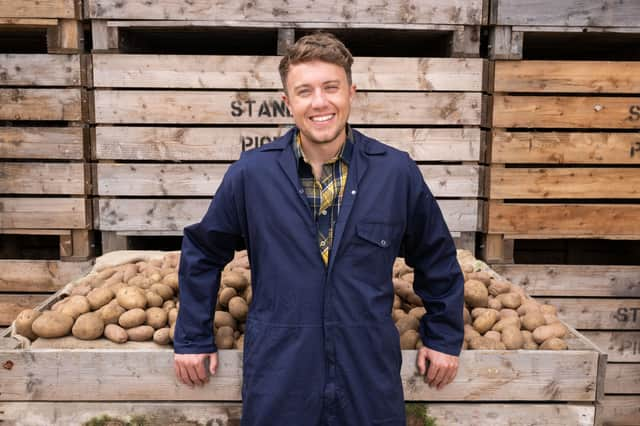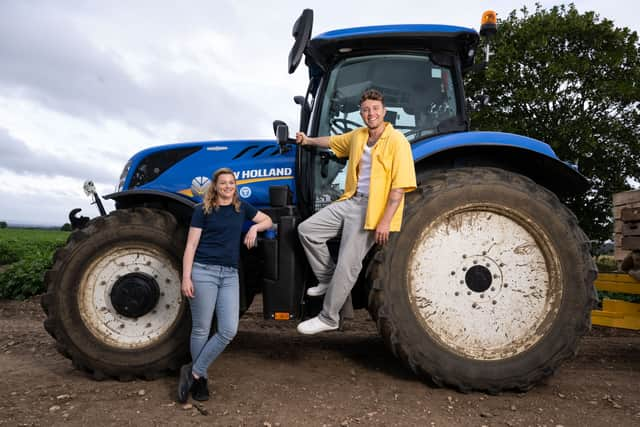Almost a third of Brits know farming is important but admit to not really knowing what farms do


Research of 2,000 adults has revealed a quarter only think of farmers as tending to livestock, rather than the production of fruit and vegetables.
However, 65 per cent would be interested in knowing more about where their food comes from.
Advertisement
Hide AdAdvertisement
Hide AdGen Z respondents were the most likely to consider what effects of products they buy in the supermarket have on the environment, with 68 per cent wanting to make informed choices.
However, it was those over 65 who were most clued-up on what regenerative farming is.
Learning about farming
The research was commissioned by McCain, who sent presenter and Capital Breakfast radio host Roman Kemp to Rectory Farm in Oxfordshire to learn about new regenerative farming practices that can help the environment.
Roman learnt about the new practices that farmer Imogen Stanley, 32, is introducing at the farm, including planting wildflowers to attract birds and insects that help keep bad bugs at bay.
Advertisement
Hide AdAdvertisement
Hide AdHe also met soil health expert Liz Stockdale to understand more about how moving the soil less helps to keep it healthy.
Roman Kemp said: “I got to ride in the tractor and even met a soil health expert - who knew there was such a job!
“I learnt about methods including crop rotation to improve soil health and wildflower planting to keep bad bugs at bay, as well as how McCain will be training and funding all its farmers in regenerative practices to ensure the future of our beloved chips.”


Knowing where food comes from
Respondents estimated only a third (34 per cent) of their weekly food shop has been made or produced in an environmentally friendly way - however, 26 per cent simply weren’t sure how much was or wasn’t.
Advertisement
Hide AdAdvertisement
Hide AdSome 31 per cent put their trust in big businesses to make the right decisions when it comes to where their food is sourced so they don’t have to.
And 42 per cent admitted they have a bit of a ‘sustainable blind spot’ when it comes to buying food, with a third rarely - or never – checking food packaging to make sure it’s environmentally friendly.
The study also delved into how people perceive the career of a farmer and the role they play in the food production process, with the most surprising elements of the job being analysing data as well as taking a science-led approach to tasks at hand.
Interestingly, over half (52 per cent) of those polled via OnePoll do not realise that farming could have a positive role in tackling climate change.
Advertisement
Hide AdAdvertisement
Hide AdHowever, some of the most common misconceptions respondents had heard about farming included greenhouse gas emissions being higher than any other sector and that a role in this area doesn’t require any educational background.
Mark Hodge from McCain Foods UK&I added: “Climate change is a real concern, especially for young people. We all want to do our bit to help, but on an individual level the scale of change needed can feel overwhelming.
"We’re hugely proud of our commitment to 100 per cent regenerative farming by 2030.
"As more and more of our growers adopt these methods with the help of training and funding that we provide, consumers are able to chip in and support more sustainable farming.”
Comment Guidelines
National World encourages reader discussion on our stories. User feedback, insights and back-and-forth exchanges add a rich layer of context to reporting. Please review our Community Guidelines before commenting.